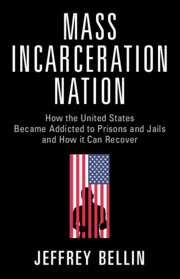 Mass Incarceration Nation
Mass Incarceration Nation from Part IV - The Road to Recovery
Published online by Cambridge University Press: 03 November 2022
In 1970, there were approximately 200,000 people in state and federal prisons and an incarceration rate of about 96 persons per 100,000 population.1 A variety of steps will be required to get back to these numbers. The previous chapters discuss ways to shrink the pool of people caught up in the criminal justice system by reducing the scope of American criminal law and decreasing offending. This chapter discusses ways to limit the number of people incarcerated from the remaining pool of law breakers. The two basic steps are (1) decreasing the number of admissions to prison/jail and (2) reducing the time served for those who are incarcerated.
To save this book to your Kindle, first ensure no-reply@cambridge.org is added to your Approved Personal Document E-mail List under your Personal Document Settings on the Manage Your Content and Devices page of your Amazon account. Then enter the ‘name’ part of your Kindle email address below. Find out more about saving to your Kindle.
Note you can select to save to either the @free.kindle.com or @kindle.com variations. ‘@free.kindle.com’ emails are free but can only be saved to your device when it is connected to wi-fi. ‘@kindle.com’ emails can be delivered even when you are not connected to wi-fi, but note that service fees apply.
Find out more about the Kindle Personal Document Service.
To save content items to your account, please confirm that you agree to abide by our usage policies. If this is the first time you use this feature, you will be asked to authorise Cambridge Core to connect with your account. Find out more about saving content to Dropbox.
To save content items to your account, please confirm that you agree to abide by our usage policies. If this is the first time you use this feature, you will be asked to authorise Cambridge Core to connect with your account. Find out more about saving content to Google Drive.